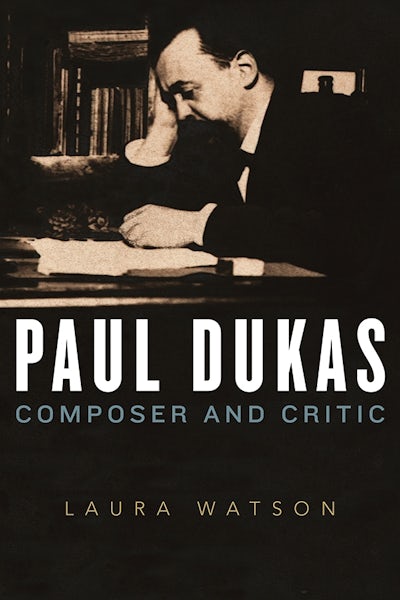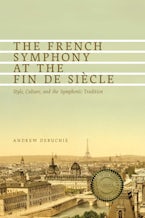
Paul Dukas
Composer and Critic
- Description
- Contents
- Author
As a noted composer and critic, Paul Dukas was a major figure in fin-de-siècle and early twentieth-century French music. Best known for L'Apprenti sorcier, he was internationally recognised as an artist and intellectual ofdistinction who contributed significantly to Parisian musical cultures and critical debates.
As a noted composer and critic, and later an editor and composition teacher, Paul Dukas (1865-1935) was a major figure in fin-de-siècle and early twentieth-century French music. Although his catalogue of published scores was relatively modest in quantity, he was internationally recognised as an artist and intellectual of distinction who contributed significantly to Parisian musical cultures and critical debates as they evolved from the 1890s until the 1930s
Moving in the same circles as Debussy and Fauré, as well as networking with trailblazers such as the Ballets Russes director Sergei Diaghilev and the conductor Serge Koussevitzky, Dukas created works that reflect French sensibilities but also resonate with transnational audiences. L'Apprenti sorcier is still his best-known work, while the opera Ariane et Barbe-Bleue has been revived and remains relevant for the twenty-first century. Works such as the Piano Sonata and the ballet La Péri respectively exemplify the twin attractions of tradition and progress for the composer. Intensely self-critical, however, he ended up destroying many of his scores.
This book is the first full-length Anglophone study of Dukas. It perceives his critical essays as a form of creative, philosophical thought that synthesised the riches of the Parisian music scene yet also represented the formationand development of his own artistic voice. Investigating Dukas's interrelated identities as composer and critic, it seeks to explain his broad aesthetic motivations and artistic agenda.
LAURA WATSON is Lecturer in Musicat Maynooth University.
As a noted composer and critic, and later an editor and composition teacher, Paul Dukas (1865-1935) was a major figure in fin-de-siècle and early twentieth-century French music. Although his catalogue of published scores was relatively modest in quantity, he was internationally recognised as an artist and intellectual of distinction who contributed significantly to Parisian musical cultures and critical debates as they evolved from the 1890s until the 1930s
Moving in the same circles as Debussy and Fauré, as well as networking with trailblazers such as the Ballets Russes director Sergei Diaghilev and the conductor Serge Koussevitzky, Dukas created works that reflect French sensibilities but also resonate with transnational audiences. L'Apprenti sorcier is still his best-known work, while the opera Ariane et Barbe-Bleue has been revived and remains relevant for the twenty-first century. Works such as the Piano Sonata and the ballet La Péri respectively exemplify the twin attractions of tradition and progress for the composer. Intensely self-critical, however, he ended up destroying many of his scores.
This book is the first full-length Anglophone study of Dukas. It perceives his critical essays as a form of creative, philosophical thought that synthesised the riches of the Parisian music scene yet also represented the formationand development of his own artistic voice. Investigating Dukas's interrelated identities as composer and critic, it seeks to explain his broad aesthetic motivations and artistic agenda.
LAURA WATSON is Lecturer in Musicat Maynooth University.
Introduction
An Intellectual and Aesthetic Formation: From Student Composer to Music Critic
Symphony in C and Discourses of the French Symphony
L'Apprenti sorcier and Theorising a Theatre of Programme Music
Piano Works in Dialogue with Tradition
Ariane et Barbe-Bleue and Conceptualising Opera after Wagner and Debussy
Dance between the Symphonic Poem and Stage: Responding to Russian Influence
After the First World War: Creative Renewal and Return to Music Criticism
Afterword
Bibliography
An Intellectual and Aesthetic Formation: From Student Composer to Music Critic
Symphony in C and Discourses of the French Symphony
L'Apprenti sorcier and Theorising a Theatre of Programme Music
Piano Works in Dialogue with Tradition
Ariane et Barbe-Bleue and Conceptualising Opera after Wagner and Debussy
Dance between the Symphonic Poem and Stage: Responding to Russian Influence
After the First World War: Creative Renewal and Return to Music Criticism
Afterword
Bibliography
Hardcover
9781783273836
April 2019
£80.00 / $115.00
Ebook (EPDF)
9781787445109
April 2019
£24.99 / $29.95
Ebook (EPUB)
9781787447097
April 2019
£24.99 / $29.95





